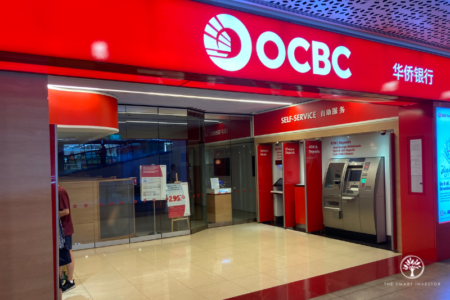We have come to the final part of our income investing series. You can check out the first five parts here, here, here, here and here.
In this final section, we explore the key attributes of a dividend investor, compounding and key terms you need to know.
Remaining calm
You should avoid caring too much about the share price because just like any other stock, dividend stocks may experience volatility in the short term.
But you should never panic.
If the stock has solid fundamentals, temporary blips offer opportunities to increase your position at a lower price, improving future dividend yield.
During the COVID-19 pandemic, REITs and even banks had to cut their dividends to preserve liquidity and strengthen their cash position.
Despite this cut, you should keep in mind that dividend-paying companies remain one of the most reliable sources of income over a long horizon.
Balance sheet strength
Great dividend stocks usually have a sturdy balance sheet.
A sturdy balance sheet implies the company has high levels of liquid assets, as well as minimal or no debt.
The strong financial position helps them withstand downturns and maintain their dividends.
The magic of compounding: reinvesting your dividends
Albert Einstein is believed to have said that compound interest is the eighth wonder of the world.
Compounding involves the reinvestment of your dividends to purchase more dividend-paying stocks.
Over time, the increase in ownership of such stocks will yield even higher levels of dividends.
This virtuous cycle, if repeated over years, creates an enormous amount of wealth as the business grows and dividends increase.
If you had started with just a trickle of dividends, you will end up with a tap gushing with dividends if compounding is done right.
However, compounding doesn’t come naturally.
It’s not wrong to feel the urge to spend your dividends.
However, in order to achieve the best result from compounding, the idea is to reinvest as much of your dividends as possible.
This process can then help you build a larger investment base and increase your dividend income over the years.
Another method of compounding is to watch out for stocks that offer scrip dividends.
Scrip dividends allow shareholders to receive dividends in the form of extra shares, rather than cash.
By accepting scrip, you are automatically reinvesting without incurring additional brokerage fees.
Key terms relating to dividends
As an income investor, these are the keywords that you should know about.
Declaration Date: This is the date where the company announces the level of dividends to be paid out, as well as information like Ex-Dividend and Payment Dates.
Cum-Dividend (CD): When a stock trades cum-dividend, or CD, this means that you will be eligible for the dividend if you purchase the stock.
Ex-Dividend Date (XD): The first day the stock will trade without being eligible for the upcoming dividend. Buying the stock on this date will NOT entitle you to the dividend.
Payable Date: Ka-ching! This is the day that the dividends will be paid out to eligible shareholders.
In summary, to be eligible to receive the dividend, you need to purchase the stock when it goes CD, and hold it through till it goes XD.
The following are different types of dividends that can be declared by companies:-
Interim: These are dividends declared based on estimated performance for the year, before full financial results are published.
An interim dividend does not need approval at an Annual General Meeting (AGM), and can therefore be paid out fairly quickly once declared.
Final: These are dividends declared at the end of the financial year and must be approved by shareholders at an AGM.
The average time period between dividend declaration and payment is usually around three months or so.
Special: Also known as extra dividends, these are one-time dividends declared because of a one-off event such as unexpectedly good earnings, or exceptional instances such as the sale of a major division, property or asset.
Such dividends should be treated as ad-hoc and should not be factored into the computation of dividend yield (otherwise the yield may look distorted).
However, in practice, some companies have a habit of regularly paying out “special” dividends.
With share prices battered to multi-year lows, many attractive investment opportunities have emerged. In a special FREE report, we show you 3 stocks that we think will be suitable for our portfolio. Simply click here to scoop up your FREE copy… before the next stock market rally.
Click here to like and follow us on Facebook, here for our Instagram group and here for our Telegram group.




